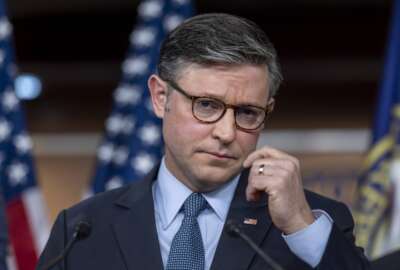Will Health 2.0 Conference change the practice of medicine?
The Health 2.0 Conference is coming to D.C. for the first time, and one of the conference\'s co-founders explains that he wants to share best practices with the...
wfedstaff | June 3, 2015 6:59 am
Earlier this week, the Department of Health and Human Services rolled out it’s Community Health Data Initiative where data can be used to make citizens more informed about health care.
Next week, for the first time, the Health 2.0 Conference will be held here in Washington, D.C.
Matthew Holt is the co-founder of the Health 2.0 Conference and says platforms like the Community Health Data Initiative have the potential to change health care in this country.
For starters, he says the entire context of getting the consumer involved in health care is changing.
Where once it was about having the patient go to a facility, see a doctor and obtain a diagnosis, now it’s about getting the patient involved and keeping them informed.
“Now, with all of these tools, people are able to be much more engaged with each other in these online communities. They’re able to be much more engaged with their conditions — emailing and communicating back and forth — and we’re finding that where that’s really happening has changed both the patient’s experience with their care and their conditions, [but] it also changes the way that clinicians and some institutions are starting to behave.”
Health IT as a topic in the federal government really gained steam when the American Recovery and Reinvestment Act was signed, and Holt says this is one reason why the conference is coming to D.C.
“It’s specifically around some of the initiatives that are going on in health care with the federal government . . . As part of the ARRA stimulus plan is spending a lot of money — maybe $1 billion or more — on electronic medical records for physicians. Part of that initiative is to try and figure out what other innovations are going on.”
Holt and his team have been working with the Office of the National Coordinator for Health Information Technology (ONC) to explore what else is going on in the all-encompassing world of health IT besides e-records for doctors. In fact, the theme of the conference is Health 2.0 Goes to Washington.
But, he adds, it’s not just about the private sector learning about the federal government. The purpose of the conference is to develop a two-way street.
“[We are] seeing that within D.C. itself, especially with some of the folks in [HHS], there’s a lot of interest in [whether or not] the government can use these light weight tools to change its behavior, instead of doing the three year procurement cycle and the seven year instillation — can they use some of these Web tools to build and change things a little bit quicker?”
Thus, the purpose of the conference is to get everyone to share and share alike. Holt says that because his group is very individual-focused, there will be not only break-out sessions involving patients, but patients sitting on panels next to doctors and technology experts, as well.
“[The involvement of the individual patient] has huge, huge implications. There are a myriad of stories about the inability of patients to get proper access to their data [and] to not really understand what’s going on within the system. For the moment, it’s just a small number of activist patients who are really demanding to get a hold of their own data and to put themselves in the center of power around the choices they’re making. That number is going to grow as more and more computer-savvy people move into the health care system.”
As more and more of Generation Y begins to participate, the impact on federal agencies will increase.
“For regulators — [how] should hospitals and physicians be regulated and told what they have to do and what they have to make available? It also makes a big difference for the government as a health care payer. What should Medicare be paying for? Should it be paying for office visits and transactions, or should it be paying for more care management services? How much of those could be delivered by patients to other patients?”
Holt also says he and others in his community are having conversations with HHS to see if it’s newly-launched Community Health Data Initiative could become a larger platform for health care in the U.S.
Copyright © 2024 Federal News Network. All rights reserved. This website is not intended for users located within the European Economic Area.





